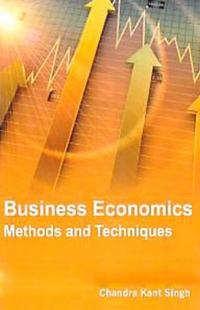Question
The Economic Way of Thinking (Thirteenth Edition) Paul Heyne, Peter Boettke, David Prychitko Chapter 13 1. Is it efficient to feed a family using large
The Economic Way of Thinking (Thirteenth Edition)
Paul Heyne, Peter Boettke, David Prychitko
Chapter 13
1. Is it efficient to feed a family using large quantities of frozen "convenience" foods? Under what circumstances could these expensive grocery items provide the least-cost inputs for producing the output of a family dinner? What questionable premise is being used by someone who says that shoppers are wasting money by paying twice as much for convenience foods as they would have to pay for dinner items, they prepare themselves?
6. Many Americans regularly drive their own cars to work rather than use public transportation or form a car pool.
a. How do you know that each person in a single-passenger vehicle during the rush hour is behaving efficiently?
b. The people riding the bus are also behaving efficiently. How can a and b both be true simultaneously?
c. What is actually being asserted by someone who says that it's inefficient for so many commuters to take their own cars to work?
8. During the gasoline "crises" of the 1970s and early 1980s, many people asked why, in view of the gasoline shortage, such "utterly wasteful uses of gasoline" as auto racing were still permitted. Many urged that such "obvious waste" be curtailed in the public interest. Is auto racing an utter and obvious waste of gasoline? Try to construct a clear and defensible definition of waste that would indict auto racing but approve other uses of automotive gasoline at a time when there might be a gasoline shortage.
Step by Step Solution
There are 3 Steps involved in it
Step: 1

Get Instant Access to Expert-Tailored Solutions
See step-by-step solutions with expert insights and AI powered tools for academic success
Step: 2

Step: 3

Ace Your Homework with AI
Get the answers you need in no time with our AI-driven, step-by-step assistance
Get Started


